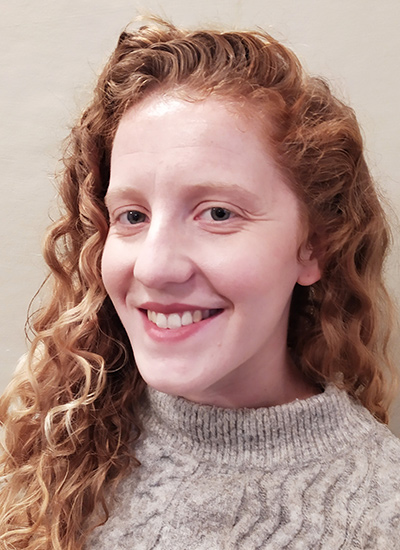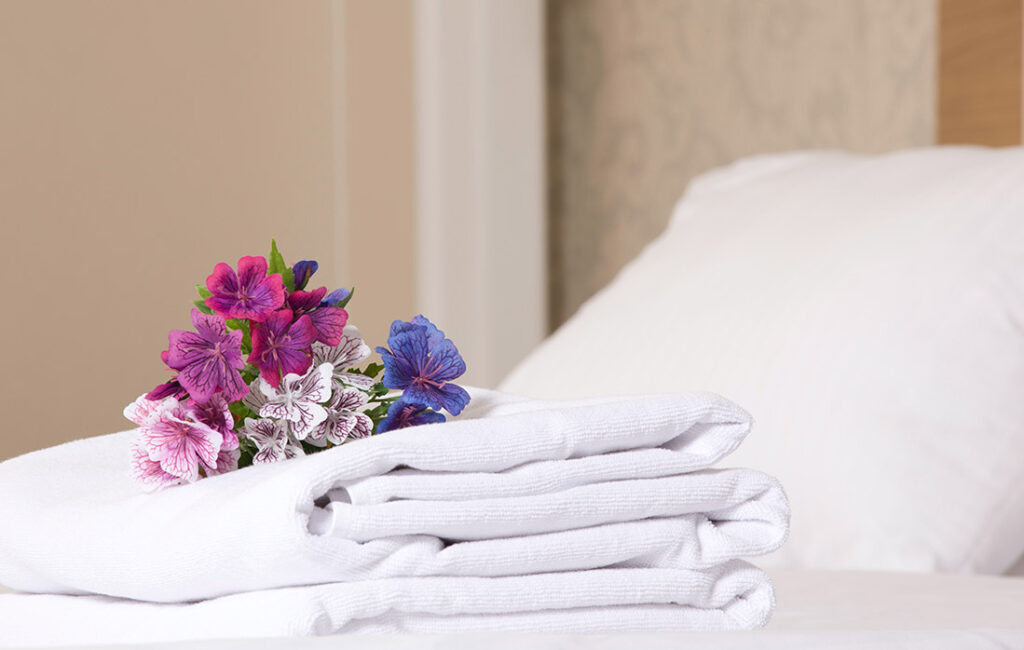
Five years ago, for the first time, I stayed in a hotel luxurious enough to offer a “turndown service.” Having no idea what this was, I was vaguely concerned I might actually be tucked into bed by a white-gloved staff member. In fact, the experience has become one of my most anticipated parts of a hotel experience because it has the magical ability to send me straight off to sleep. When I open the hotel room door to the soft lighting, pulled curtains, plumped pillows and slippers neatly placed by the bed, I’m already yawning.
I’ve always struggled with falling asleep; it can take me hours. As my partner gently snores beside me, I attempt to clear my mind of all thoughts, think of a name beginning with every letter of the alphabet or listen to a podcast. But sleep rarely comes quickly. And woe betide if there’s too much light in the room, a ticking clock, insufficient pillows or a degree off the right temperature.
For a travel writer that stays in myriad accommodations around the world, this has been a source of great frustration. You’d presume the principal goal of a hotel is to give guests a good night’s rest, but paper-thin walls, the whine of air-conditioning and utterly inefficient curtains seem to be regular hotel features.
When I encounter a turndown service, however, something glorious happens. Generally, it is already combined with five-star accommodation: silky bed linens, ample pillows, and soundproofing.
But the turndown service is the cherry on top. In recent years, the rise of sleep tourism — where travelers choose accommodation specifically for its sleep-encouraging features — has supercharged the service. Usually, it means staff will prepare your room for bedtime while you are out at dinner. They’ll draw the curtains, turn down the lighting, place water by your bed and leave out your slippers.
Now, hotels are taking it up a gear. At the Emerald Resort & Spa in Zanzibar, my mosquito curtains (more like elegant bed drapes) were firmly closed, bed scattered with petals, bluetooth speaker at hand’s reach and the next day’s itinerary left as a pleasant bedtime read. At the Portrait Firenze in Florence, I found a lavender scented anti-aging mask (they’d clearly clocked my tired skin on arrival) and lip balm. Essential oils have been shown to aid sleep; a 2005 study found that lavender increased slow and deep wave sleep in participants.
In the Four Seasons Budapest, housed inside an ornate Art Nouveau building, turndown comes with a little card recounting historical or cultural nuggets about the city. This successfully distracted me from scrolling on my phone as a pre-sleep activity.
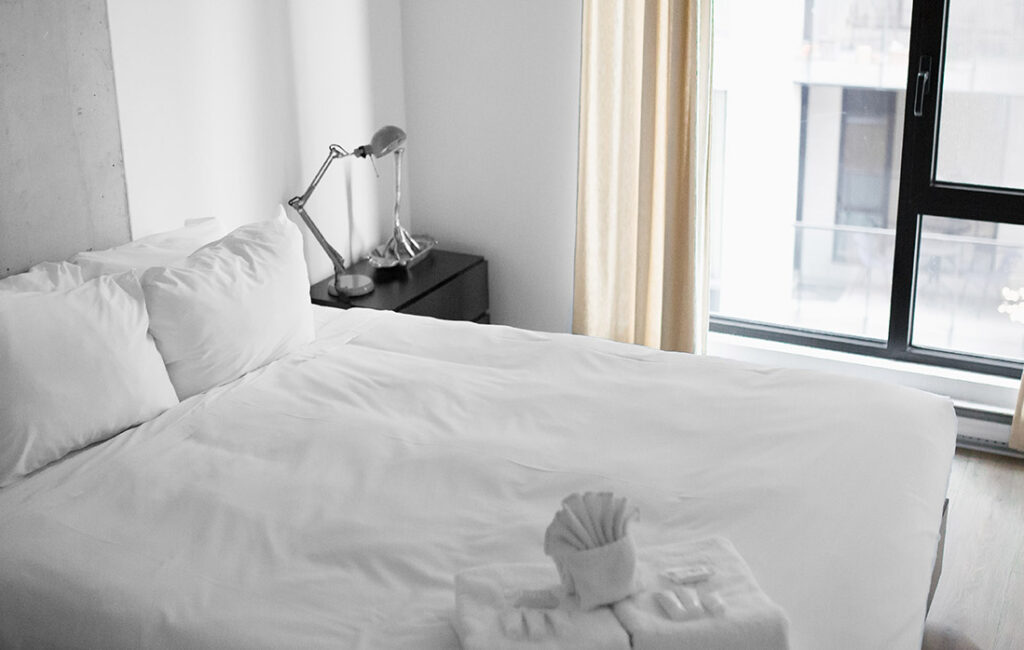
Having found that a turndown makes me drift off with miraculous ease, I’ve been recreating the experience at home. The fancier stuff I keep as a treat, but most nights I carry out a basic turndown routine. I plump the pillows and fold down the corner of the duvet and top sheet ready to slip in. Water is essential — I loath having to get up in the night and groggily avoid stepping on cats to get to the kitchen. A quick tidy up of the room sends a psychological message to declutter the mind too.
I leave something on the nightstand to look at in bed like a crossword or a book to make sure blue light is kept to a minimum in the bedroom as doctors recommend. “Blue light suppresses the production of melatonin, the main sleep hormone. This helps keep people awake during daylight hours, but it can also impact their ability to fall asleep,” writes sleep medical expert Dr. Michael Breus.
Every so often, I do the deluxe version. This varies from adding a fragranced linen mist, scented candle, mini-chocolate (occasionally purloined from an actual hotel turndown service) or speaker with a sleep podcast. Importantly, I leave the room for around 20 minutes to distance myself from the procedure and delude myself into thinking it was my illusory house butler.
This process has become so ritualistic for me, that just seeing a bed with the sheets invitingly turned down triggers something in my brain that signals time for sleep. “In a very real sense, our bodies can learn to sleep well,” writes neurologist Brandon Peters. “Adults need daily sleep rituals prior to going to bed to allow us to unwind and mentally prepare for going to sleep.”
While turning down your bedroom is not a serious sleep aid for conditions such as insomnia, I urge anyone with a mind that’s reluctant to switch off at bedtime to try the five-star bedroom treatment.

‘Love is Blind’ Contestants Claim the Show Led to Sleep Deprivation

Are Alarm Clocks — And The Snooze Button — Really Bad For Sleep?
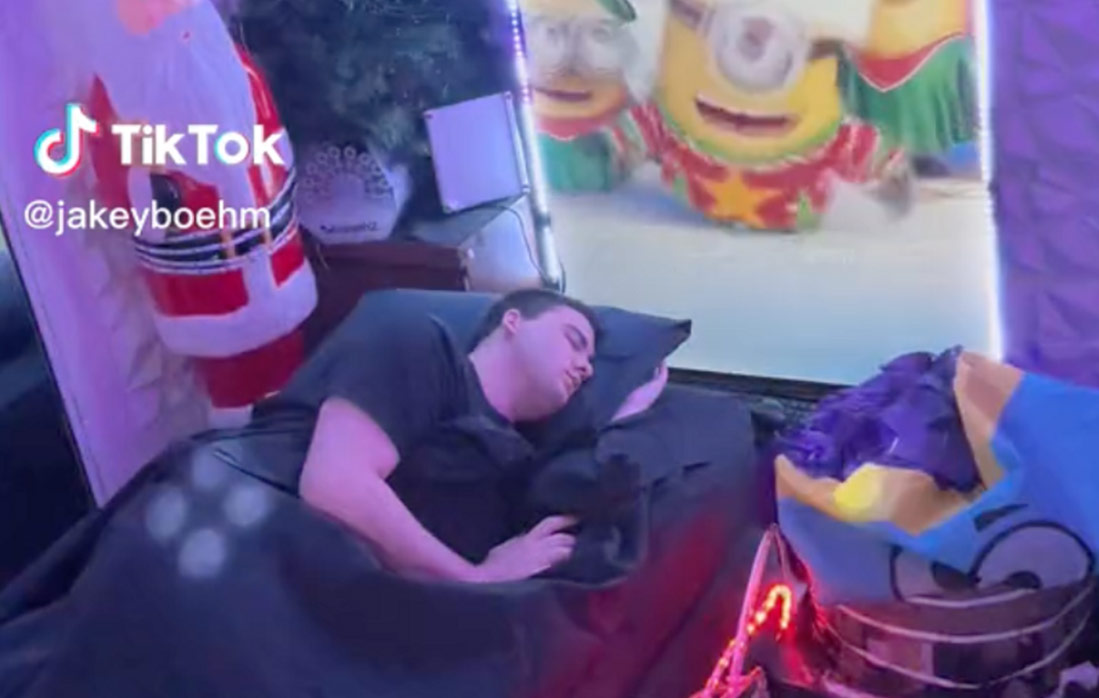
Meet the TikTok Influencers Making Money for Livestreaming Their Sleep
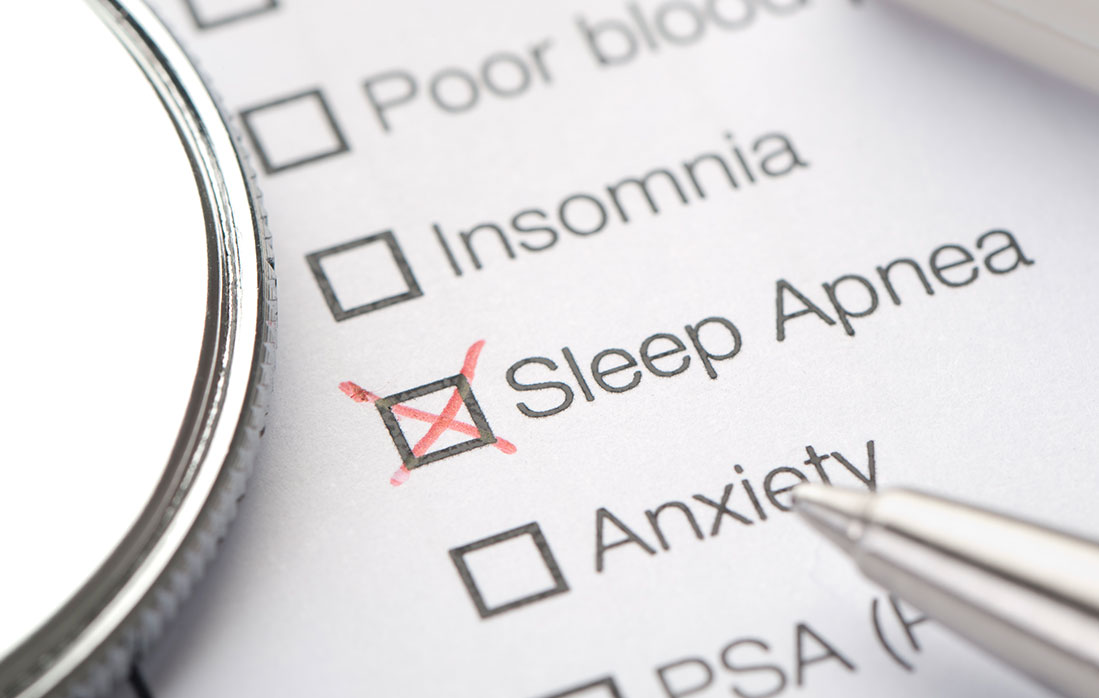
A Nasal Spray Sleep Apnea Treatment Shows Promise in New Study
Sources
(2005) An Olfactory Stimulus Modifies Nighttime Sleep in Young Men and Women, Chronobiology International, 22:5, 889-904, DOI: 10.1080/07420520500263276



























